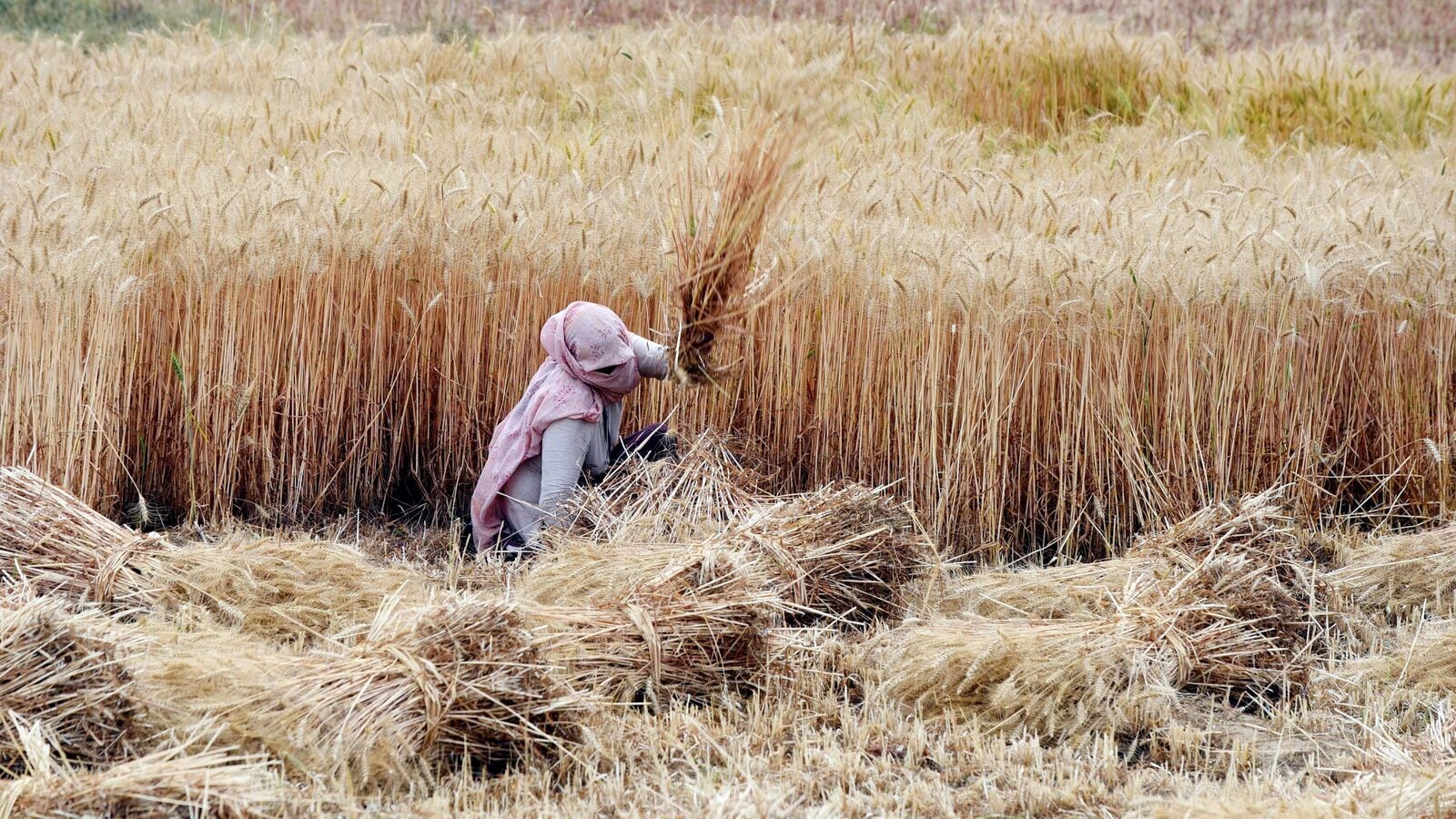Joshi asked the states while chairing a virtual meeting with the food ministers of Uttar Pradesh, Madhya Pradesh, Bihar, Gujarat, and Rajasthan to review preparations for wheat procurement for the upcoming rabi marketing season, according to statement released by the ministry.
Uttar Pradesh is the top wheat-producing state in India, accounting for around 31.77% of the country’s total wheat production, followed by Madhya Pradesh, which contributes about 20.98%. Bihar contributes around 8%, Rajasthan accounts for 9.36%, and Gujarat contributes about 7.12% of the nation’s total wheat production.
India produced 107.74 million tonnes of wheat in FY22, which rose to 110.55 million tonnes in FY23, and further to 113.29 million tonnes in FY24, reflecting a steady growth trajectory.
Also read | Cold wave to boost wheat and mustard crops; may hit chickpea and potato yield
Joshi stressed that the five states, known for their agricultural strength, hold significant potential for wheat procurement and can play a pivotal role in strengthening the central stockpile.
This is particularly important not only for food security but also for controlling inflation, especially in times of market disruptions. By increasing procurement, the states will help avoid price volatility and ensure the availability of wheat for programs like the Pradhan Mantri Garib Kalyan Anna Yojana (PMGKAY), which provides subsidized foodgrains to the vulnerable sections of society.
Streamlining wheat supply for PMGKAY
Under PMGKAY, more than 81 crore beneficiaries receive free foodgrains, including wheat, to support them. Each beneficiary is entitled to 5 kg of wheat per month. This is in addition to the regular allocation under the National Food Security Act (NFSA). The scheme, which is valid until December 2028, aims to provide free foodgrains to economically-vulnerable individuals, ensuring food security for those in need.
Also read | Govt reduces wheat stock limits for traders and retailers, says ample grain available
During the discussions, Joshi highlighted several key areas that need attention, such as the need to fix district-wise procurement targets based on potential, and to open additional procurement centres in remote areas. He also emphasized that ensuring timely payment of minimum support price (MSP) to farmers is crucial, as delays can discourage them from selling their produce through official channels.
The meeting also touched upon the importance of maintaining the quality of procured wheat, addressing issues related to the inter-state movement of stocks, and ensuring adequately trained workforce at mandis. Joshi encouraged states to actively engage local panchayats, farmer producer organizations (FPOs), and cooperative societies to enhance procurement efficiency and minimize delays, the ministry said in the statement.
States were also urged to aim for procurement levels at least equal to the wheat requirement for PMGKAY, to reduce transportation costs and ease the logistical burden on the central government. This will not only streamline procurement processes but also ensure a steady supply of wheat in the central pool, especially during periods of high demand.
And read | Better harvest in rice, wheat, millets to fuel record output
The food ministers of the five states expressed their commitment to following the guidance discussed in the meeting, and to enhancing their efforts towards achieving the wheat procurement targets for RMS 2025-26.
Catch all the Industry News, Banking News and Updates on Live Mint. Download The Mint News App to get Daily Market Updates.
MoreLess
National Food Security Act, Uttar Pradesh, Bihar, Madhya Pradesh, Gujarat, Rajasthan, PMGKAY, rabi marketing season, MSP, Farmers, mandis, FPO, foodgrain
#Centre #asks #states #boost #wheat #procurement #rabi #season


